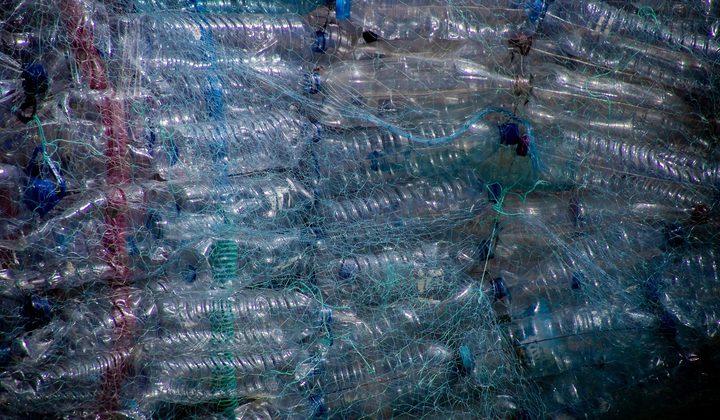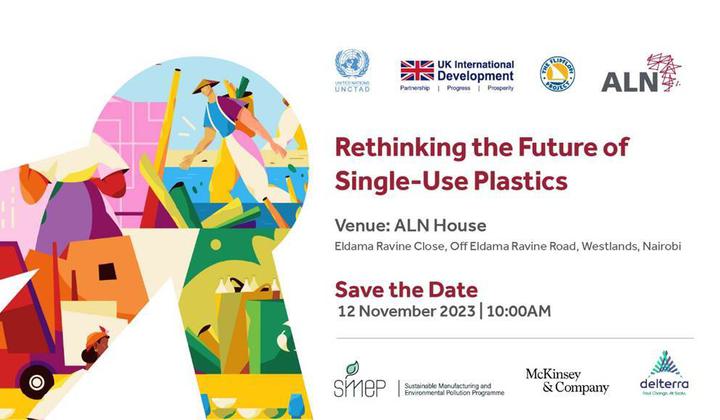The Government of Rwanda, through the Rwanda Environment Management Authority, and the French Ministry of Ecological Transition are cosponsoring a high-level COP28 side event to connect the dots between the plastics and climate crises. The event is open for in-person participation to all with Blue Zone passes at COP28 on a first come basis, and is implemented in partnership with TESS and the Environmental Investigation Agency (EIA).
The ongoing expansion of primary plastic production is a significant driver of carbon emissions. Business-as-usual projections are that plastic production will account for as much as 19% of the carbon budget under the 1.5°C Paris Agreement target by 2040, which is equivalent to a doubling of the overall lifecycle carbon footprint of plastics production. The OECD has shown that the production of primary polymers and their subsequent conversion into products collectively contribute to around 90% of the lifecycle emissions associated with fossil-fuel-based plastics. In 2023, new research warns that continued and significant scaling up of plastic production will produce a near doubling of mismanaged plastics, and a more than 60 percent increase in greenhouse gas emissions by 2040 from the plastic system in the absence of new and effective global measures.
With over 98% of primary plastics being derived from fossil fuels, the ongoing expansion of primary plastic polymer production is perpetuating demand for fossil fuels, with many industry players in oil, gas and petrochemicals viewing the plastics sector as a strategic investment in the face of pressure to move away from fossil fuel-based energy services.
In the coming years, investment plans are already underway for more than 1,000 new petrochemical projects, primarily focused on producing plastic precursors and polymers. The development of costly and long-term petrochemical infrastructure, such as steam crackers and polymerization plants, is poised to lock in plastic production for decades, accompanied by sustained fossil fuel consumption for raw materials and energy sources, and a range of health impacts, especially for frontline communities.
To connect the dots between the plastics and climate crises, this event aims to:
- Spur discussion on how reducing primary plastic polymer production & eliminating high risk plastics can generate co-benefits for Paris Agreement, plastics treaty & sustainable development goals;
- Bring together environment ministers and actors that share both high climate ambition (including to phase out fossil fuels) with high ambition for the plastics treaty, including a focus on the upstream phase of the plastics life-cycle;
- Highlight the importance of a stronger focus on the petrochemical and plastics sectors in the context of efforts to achieve the Paris Agreement's climate temperature goals and industrial decarbonization;
- Review progress and outcomes from the the third session of the Intergovernmental Negotiating Committee (INC-3) and the road ahead to INC-4, as well as potential contributions to the UNFCCC process & Paris Agreement goals.
Agenda
Welcome Remarks from Co-hosts
- Dr. Jeanne d'Arc Mujawamariya, Minister of Environment, Rwanda; Co-chair of the High Ambition Coalition to End Plastic Pollution
- H.E. Mrs. Sylvie Lemmet, French Ambassador for the Environment, Ministry of European and Foreign Affairs, France
High-Level Panel
- Ms. Inger Andersen, Executive Director, UN Environment Programme (UNEP)
- H.E. Amenatave V. Yauvoli, Ambassador of the Republic of Fiji to the Republic of Indonesia, Republic of Singapore and Malaysia
- H.E. Luis Vayas Valdivieso, Ambassador of Ecuador to the United Kingdom, Chair, International Negotiating Committee, Ecuador
Strategic Insights and Reflections
- Dr. Nihan Karali, Policy Researcher, International Energy Studies Group, Lawrence Berkeley National Laboratory
- Ms. Jo Tyndall, Director, Environment Directorate, Organization for Economic Cooperation and Development (OECD)
- Mr. Tim Grabiel, Senior Lawyer, Environmental Investigation Agency (EIA)
- Mr. Carroll Muffett, President and CEO, Center for International Environmental Law (CIEL)
Moderator:
Dr. Carolyn Deere Birkbeck, Executive Director, Forum on Trade Environment & the SDGs






